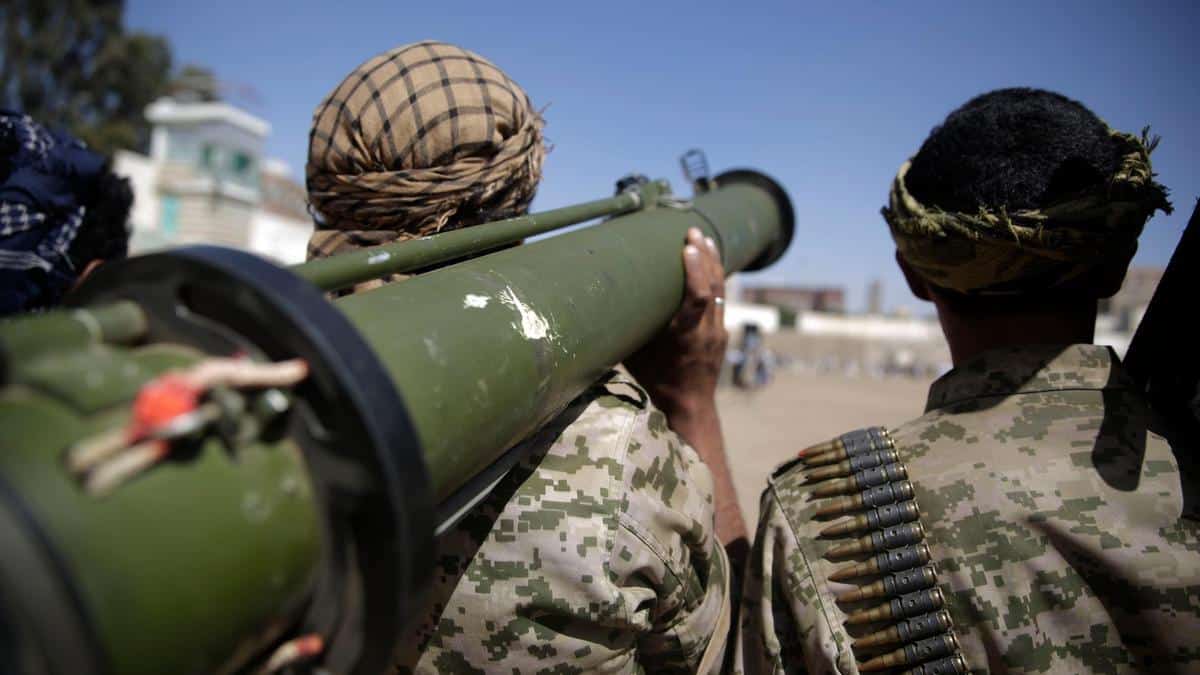
12-03-2020 at 10 PM Aden Time
The United Nations peace envoy to Yemen Martin Griffiths on Thursday criticised a rebel offensive in Al Jawf province as the “most alarming military escalation” currently occurring in the country’s gruelling civil war.
Addressing the UN Security Council, Mr Griffiths said he was troubled by the Houthi rebel seizure earlier this month of provincial capital Al Hazm after clashes with government forces and the subsequent exodus of refugees.
“I am deeply concerned about the rationale driving these escalations and the impact of the violence on Al Jawf’s people,” Mr Griffiths told diplomats in New York via a video-link.
“This escalation could
Heavy fighting between the Iran-aligned Houthi militiamen and Yemeni government forces ended a relative lull in the conflict over recent months, which had raised hopes of a sustained reduction in violence and a war-ending peace deal.
Describing his visit last week to Marib, a neighbouring province to Al Jawf, Griffiths spoke of violent clashes and raised tensions there, warning that “Marib must not become the next epicentre of the conflict.”
Also addressing the council, UN aid official Ramesh Rajasingham said “tens of thousands” of Al Hazm residents had fled the city, often heading to “remote desert areas” or to Marib, which is already home to 750,000 civilians displaced by previous rounds of fighting.
UN officials were “intensifying” talks with Houthi militia leaders about humanitarian operations, added Rajasingham, amid claims from aid agencies that the rebels have obstructed and diverted aid flows in the country’s north.
Britain and the US, two of the top donors to the world’s biggest humanitarian operation in Yemen, have threatened to cut off work in Houthi territory unless the rebels stop restricting aid workers and nixing their projects.
“We are intensifying dialogue with the de facto authorities to ensure the right conditions are in place to facilitate this work,” said Rajasingham. “We are also preparing to adjust programmes in case those conditions are not in place.”
The World Food Program had been trying for months to launch a biometric scheme to register recipients of handouts in Houthi areas, said Rajasingham. The agency was close to a deal with the Houthis over the scheme when “new conditions” suddenly emerged, he said.
“It is frustrating to see last-minute issues raised at the technical level … after more than eight months of sustained negotiations,” Rajasingham said. He also urged the Houthis to green-light 71 aid schemes that await approval.
In her final address as Britain’s UN ambassador before becoming its envoy to the US in Washington, Karen Pierce urged aid teams to be wary of a coronavirus pandemic that has claimed thousands of lives globally.
“The last thing Yemen needs would be an outbreak of this,” said Pierce “I notice the increasing restrictions that many states are implementing in the region.”
The Houthis ousted President Abdrabu Mansur Hadi’s government from Sanaa towards the end of 2014, prompting military intervention in 2015 by a coalition led by Saudi Arabia and the UAE. Fighting has left 24.1 million people needing aid.
#Source: The National